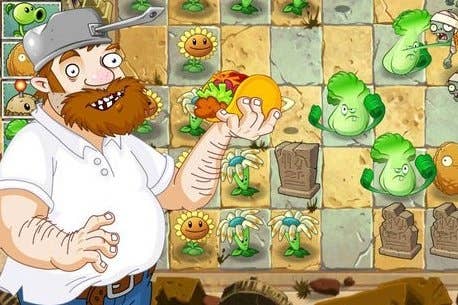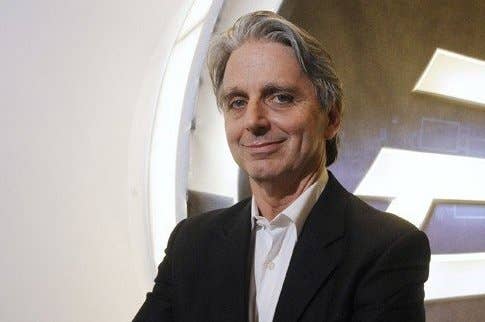Riccitiello: Minecraft, free-to-play and the price of eggs
And what excites the former EA CEO about Oculus Rift
John Riccitiello's life is very different since he left his role as CEO at Electronic Arts. Now he spend his time investing in companies like Unity and Oculus Rift and looks positively serene as he chats about Microsoft's Mojang acquisition (among other things) in a San Francisco bar.
"I can imagine [Microsoft] doing great things to make it work brilliantly and I can imagine another alternative," he told GamesIndustry.biz
"It's a lot of money, they must have thought it through, I just don't know what their plan is."
I ask if, had the EA coffers allowed it, he would have been tempted to make a deal for the Minecraft studio when he was at EA.
"I don't think we ever made an acquisition anywhere in that zipcode for price and no, I don't think we would have gone after a deal at that price."
"think it's not just games, you're going to see a lot of business model innovation and transformation. There'll still be premium, it's not going to all be free-to-play"
It's been a year since Riccitiello left EA and during his tenure the company started to move into the mobile markets, grappling with free-to-play business models and setting their digital content strategy for the future. Does he feel there's been a change in the free-to-play market since he left the company?
"I think it's still evolving and it always will. I think that it's not going to swallow the world but I think that in the end, most pricing models that exist for anything - I mean literally anything - are a reaction to constraints in the distribution pipeline."
He likened it to traditionally getting 11 songs on a vinyl record because it didn't make sense to put a single record that big through the retail channels, or buying a dozen eggs because it isn't that efficient to buy four.
"One of the things about digital content is it is often infinitely divisible into moments or minutes. You can decide that you're going to build your business model around constraints of distribution channels that may not even exist anymore, but you're going to pretend they do because your mind is stuck there," he explained.

"Or you're going to break free and say 'the distribution channel allows me to be infinitely divisible, and secondly I'm going price around what my consumer wants to do'. Consumers are very willing to pay a lot of money for the things they want to do and that gets you to things like free-to-play.
"I think we'll see a lot more business model innovation. I don't know that in the end we'll ever see premium go away, you're going to have a creator who says 'look, the only way we want you to experience this is to experience it all and so we're going to give it to you that way.'"
Again, he likened games to a medium with a long tradition - the book - which was still stifled by old school, hardbound publishing priorities. Digital publishing meant books could now be sold chapter by chapter, and yet this hadn't caught on in the mainstream.
"I think it's not just games, you're going to see a lot of business model innovation and transformation. There'll still be premium, it's not going to all be the free-to-play that we now recognise."
"George Lucas and Gene Roddenberry thought [virtual reality] was a good idea"
He also spoke about Oculus Rift, in which he is an investor, and how that fits into the three-screen future of TV, tablet and mobile phone.
"Personally I think it could be entertainment but I think it's also possible, when they shrink the glasses, for you and I to sit like this and have this conversation as if we're in the room together, and we're not. Not everyone thinks that instant messaging or texting, email and even a phone call feels like an intimate conversation," he said.
"We are warm blooded humans, we sweat and have hair and things that don't seem to make sense in a digital world and I don't know, I think this may be one of the ways to break that down. How profoundly important... I don't know, but it seems like George Lucas and Gene Roddenberry thought it was a good idea."









